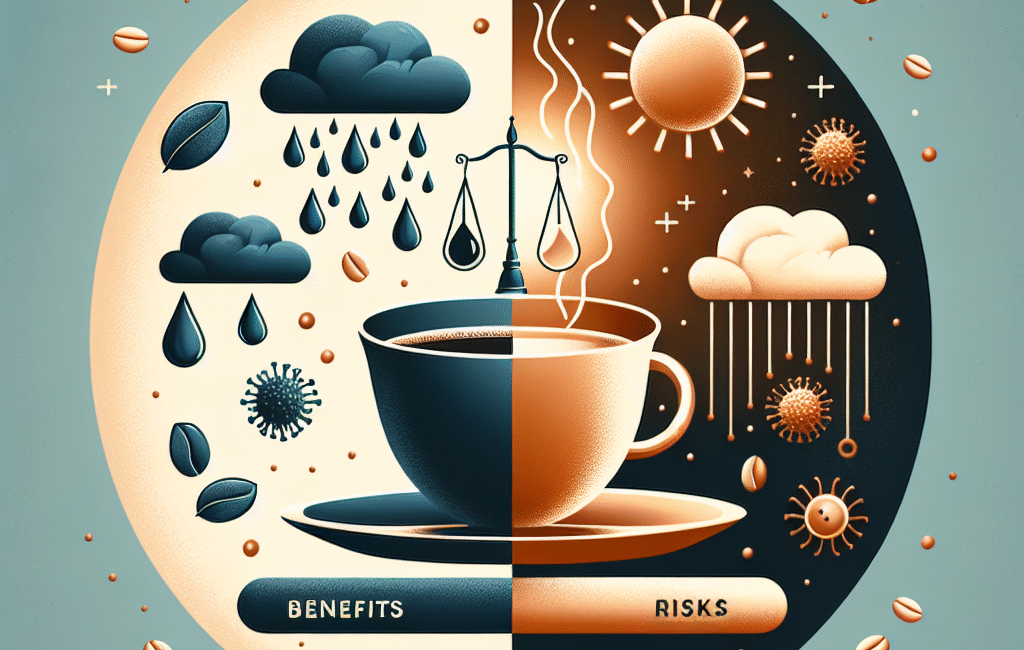
The Ultimate Guide to Coffee and the Immune System: Benefits and Risks
Coffee is one of the most popular beverages worldwide, enjoyed by millions for its rich flavor and stimulating effects. But beyond its invigorating properties, coffee has been the subject of numerous studies investigating its potential impact on our health, particularly the immune system. In this comprehensive guide, we will explore the benefits and risks of coffee consumption in relation to immune function, helping you make informed choices.
Understanding the Immune System
The immune system is a complex network of cells, tissues, and organs that work together to defend the body against harmful invaders, such as bacteria, viruses, and parasites. It consists of two main components:
- Innate Immunity: The body’s first line of defense, consisting of physical barriers (like skin) and immune cells that respond quickly to pathogens.
- Adaptive Immunity: This component develops over time and involves specialized immune cells that remember and target specific pathogens for more effective responses in future infections.
Maintaining a healthy immune system is crucial for overall health and well-being. Factors such as nutrition, exercise, sleep, and stress management play vital roles in supporting immune function.
The Health Benefits of Coffee
Coffee is rich in antioxidants, particularly polyphenols, which have been shown to provide various health benefits, including:
- Reducing Inflammation: Chronic inflammation is linked to many diseases, including autoimmune conditions. Some studies suggest that coffee may help reduce inflammation in the body.
- Enhancing Immune Response: Moderate coffee consumption has been associated with improved immune response, potentially due to its antioxidant properties.
- Protecting Against Chronic Diseases: Research indicates that regular coffee drinkers may have a lower risk of certain chronic diseases, such as type 2 diabetes, cardiovascular disease, and some cancers.
Coffee and the Immune System: What the Research Says
Research has shown that coffee can have both positive and negative effects on the immune system. Here’s a closer look at the evidence:
Positive Effects
Several studies suggest that coffee may enhance immune function:
- A study published in Nutrition Journal found that coffee consumption is associated with a lower risk of developing autoimmune diseases, such as rheumatoid arthritis.
- Another research article highlighted that caffeine can enhance the activity of certain immune cells known as T-cells, which play a crucial role in fighting infections.
Negative Effects
On the flip side, excessive coffee consumption can have detrimental effects on immune function:
- High caffeine intake may lead to increased stress hormones, such as cortisol, which can suppress immune system function when chronically elevated.
- Some studies have suggested that excessive coffee consumption can lead to sleep disturbances, which negatively impact immune function.
How Much Coffee is Beneficial?
Moderation is key when it comes to coffee consumption. While individual tolerance levels vary, most research suggests that 3-4 cups of coffee per day can offer health benefits without significant risks. This amount typically provides:
- Approximately 300-400 mg of caffeine, which is considered a safe daily limit for most adults.
- A rich source of antioxidants that support overall health.
However, it’s essential to listen to your body and adjust your intake based on how you feel. If you experience anxiety, insomnia, or digestive issues, it may be time to reduce your consumption.
Other Factors to Consider
While coffee can offer health benefits, it’s essential to consider other lifestyle factors that contribute to immune health:
- Diet: A balanced diet rich in fruits, vegetables, whole grains, and lean proteins provides essential nutrients that support immune function.
- Exercise: Regular physical activity has been shown to boost immune response and overall health.
- Sleep: Quality sleep is crucial for a well-functioning immune system. Aim for 7-9 hours of sleep per night.
- Stress Management: Chronic stress can weaken the immune system. Techniques such as mindfulness, meditation, and yoga can help reduce stress levels.
Potential Risks of Coffee Consumption
While moderate coffee consumption can be beneficial, there are potential risks associated with excessive intake or individual sensitivities:
- Insomnia: High caffeine intake can lead to sleep disturbances, negatively impacting immune function and overall health.
- Increased Heart Rate: Some individuals may experience palpitations or increased heart rate with high caffeine consumption.
- Gastrointestinal Issues: Excessive coffee may irritate the stomach and lead to digestive discomfort.
Conclusion
Coffee can be a delightful part of your daily routine, offering various health benefits while also posing some risks, especially when consumed in excess. The key to enjoying coffee lies in moderation. By keeping your intake within recommended limits and maintaining a balanced lifestyle, you can harness the potential benefits of coffee for your immune system while minimizing any negative effects.
As with any dietary choice, it’s essential to listen to your body and consult with healthcare professionals if you have specific health concerns or conditions. Enjoy your coffee, and cheers to a healthy immune system!


